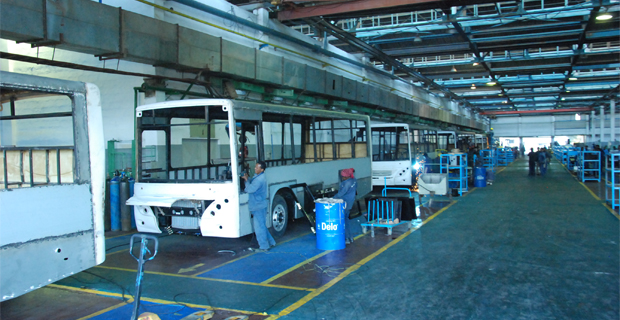
The Macroeconomic Committee has put on hold a proposal forwarded by officials of the ministries of Trade and Industry to import oilseeds for use by medium-sized edible oil plants.
The development comes on the heels of a cooking oil shortage that saw price double to nearly 1,000 Br for a five-litre bottle earlier this month. The proposal entails importing three types of oilseeds to supply 21 selected domestic manufacturers to use full production capacity. The plants can produce around 22 million litres a month but operate on 10pc of capacity due to inadequate supplies of inputs.
The macroeconomic committee is chaired by Prime Minister Abiy Ahmed (PhD); it comprises Girma Birru, chief economic advisor, Central Bank Governor Yinager Dessie, Minister of Planning Fitsum Assefa, Finance Minister Ahmed Shide, Trade Minister Gebremeskel Challa and Industry Minister Melaku Alebel. It looked into a proposal recommending the imports of 94,000tn of soybean, sunflower seeds, and groundnut from Sudan, Argentina, Brazil or Ukraine, the world's biggest sunflower producer.
Ukraine and Russia accounted for close to 60pc of 55 million tonnes of sunflower seed production last year. Sudan produces over four percent of the 44 million tonnes of groundnut harvested each year. China accounts for over a third of the global output.
Among the plants that would have benefited from the imports was Addis Modjo Edible Oil Factory. Established a quarter of a century ago with a production capacity of 50,000 litres a day, the company struggled with raw material shortages before ceasing operations at its plant in the capital three months ago. It is moving to Modjo town, 76Km southeast of Addis Abeba.
The company could produce at full capacity using groundnuts and other oilseeds without the shortage in inputs, says Mohammed Yusuf, general manager.
Mohammed, who also serves as vice board chairperson for the Ethiopian Edible Oil Manufacturer Industries' Association, says the government's practice of importing crude palm oil (mainly from Malaysia) is more beneficial and cost-effective than importing refined or processed oil. The federal government imported 89,000tn of semi-processed palm and soybean oil over the last year to ease domestic oil plants' shortage of inputs. The import of edible and crude oil accounted for over 85pc of the 27 billion Br in import bills from Malaysia.
Five large-scale edible oil plants receive the crude oil for further processing before distributing it to markets.
"But importing oilseeds is a much better option,” said Mohammed.
The Association had been lobbying the government to avail the inputs through imports because of the scarcity of oilseeds in the country.
Last year, around eight million quintals of oilseeds were cultivated in Ethiopia. It is a fraction of aggregate demand from medium-sized edible oil manufacturers that can crush more than a tonne of oilseeds a day. Most oilseeds produced are destined for export. Last year, Ethiopia earned close to 430 million dollars from the export of oilseeds.
The ministries of Trade and Industry began preparing the proposal last year, teaming up with the Ethiopian Food, Beverage & Pharmaceutical Industry Development Institute. A study was conducted before it was tabled to the Macroeconomic Committee last September. The plan was to import the oilseeds and distribute them to the oil plants through state-owned enterprises that distribute essential commodities and raw materials to consumers and factories.
The Committee had initially given the nod to the proposal, according to Ashenafi Mamuye, team leader for market research and monitoring fast-moving consumer goods at the Ministry of Trade & Regional Integration. However, the government restructuring paused the process. It was last week the proposal resurfaced for the committee's considerations. Officials say it has been shrugged off in favour of prioritising refined and crude palm oil imports to ease shortages.
“The government has put the proposal on hold," Ashenafi. "It wouldn’t solve the problems immediately.”
Officials at the Ministry of Industry say the proposal would have been accepted without the country's foreign currency shortage. The average price for oilseeds like soybean and groundnut when the study was conducted last year was around 800 dollars a tonne. Sunflower seeds were slightly more expensive, at 900 dollars a tonne.
“Members of the Macroeconomic Committee all believed in the feasibility of importing the oilseeds,” said Nigus Chernet, head of the team supervising the agro-processing and pharmaceutical industries at the Ministry.
Nigus also led the team from the Industry Ministry that took part in drafting the proposal. He disclosed the import of these oilseeds could cost up to 30 million dollars a month.
A thousand tonnes of groundnut was imported from Sudan to be distributed to a handful of edible oil plants near Bahir Dar in the Amhara Regional State.
Yesuf Seid, a researcher at the Institute who participated in the imports, considers the efforts "successful."
“Groundnuts used to be imported illegally from Sudan," he said. "We imported them legally for trial and saw how productive it was.”
Adane Tuffa (PhD), an agricultural economist and lecturer at Addis Abeba University, argued it would be wise for the government to supply edible oil plants with inputs necessary to avoid the high costs of importing refined oil. However, the expert warns the import of oilseeds should be treated with great caution not to disrupt markets for domestic producers.
"It should go hand-in-hand with encouraging local oilseed farmers to up their productivity," he said.
PUBLISHED ON
Mar 19,2022 [ VOL
22 , NO
1142]

Fortune News | May 25,2019

Fineline | Aug 10,2019

Fortune News | Feb 01,2020

Editorial | May 14,2022

Radar | May 04,2024

Fortune News | May 11,2019

Fortune News | Aug 10,2019

Fortune News | Nov 16,2019

Fortune News | Aug 13,2022

Radar | May 02,2020

Dec 22 , 2024 . By TIZITA SHEWAFERAW
Charged with transforming colossal state-owned enterprises into modern and competitiv...

Aug 18 , 2024 . By AKSAH ITALO
Although predictable Yonas Zerihun's job in the ride-hailing service is not immune to...

Jul 28 , 2024 . By TIZITA SHEWAFERAW
Unhabitual, perhaps too many, Samuel Gebreyohannes, 38, used to occasionally enjoy a couple of beers at breakfast. However, he recently swit...

Jul 13 , 2024 . By AKSAH ITALO
Investors who rely on tractors, trucks, and field vehicles for commuting, transporting commodities, and f...

Oct 4 , 2025
Eyob Tekalegn (PhD) had been in the Governor's chair for only weeks when, on Septembe...

Sep 27 , 2025
Four years into an experiment with “shock therapy” in education, the national moo...

Sep 20 , 2025
Getachew Reda's return to the national stage was always going to stir attention. Once...

Sep 13 , 2025
At its launch in Nairobi two years ago, the Africa Climate Summit was billed as the f...